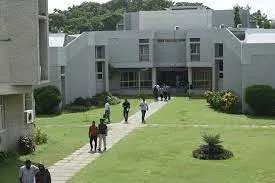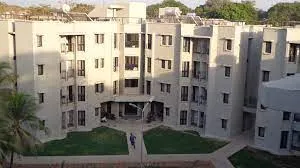About

University Type
Public

Gujarat,
India

Year Established:
1979
Institute of Rural Management Anand (IRMA) is an autonomous institution and premier business school located in Anand Gujarat, India with the mandate of contributing to the professional management of rural organizations. IRMA was founded with the belief, borne out by Verghese Kurien’s work in the dairy co-operatives which revolutionized the dairy industry in the country (Operation Flood), that the key to effective rural development is professional management. It is considered as the best business school in the Rural and Agricultural Business Management Sector of India.
The Institute was established with the support of the Swiss Agency for Development and Corporation, the Government of India, the erstwhile Indian Dairy Corporation, the NDDB (National Dairy Development Board) and the Government of Gujarat. The IRMA campus was designed by the famous architect Achyut Kanvinde.
The annual convocation at the college is known for its display of Indian culture and traditions. In 2022, the convocation was graced by Amit Shah, the Hon'ble Minister of Home Affairs and Minister of Cooperation, Government of India, as the Chief Guest as well as former Prime Minister Indira Gandhi attended IRMA's first annual conference in 1982
Institute of Rural Management Program Rankings
- Business - Rank #51-60 in Asia (QS)
Institute of Rural Management Highlights
FAQs
What are the most popular graduate programs offered at Institute of Rural Management?
The Institute of Rural Management is renowned for its specialized programs focusing on rural management and development. The most popular graduate programs include the Post Graduate Diploma in Rural Management (PGDRM) and the Fellow Programme in Rural Management (FPRM). These programs equip students with the knowledge and skills necessary to contribute effectively to rural development and policy planning.
What is the Annual Cost of attendance at Institute of Rural Management?
The annual cost of attendance at the Institute of Rural Management generally includes tuition fees and living expenses. For the PGDRM program, the tuition fees are approximately INR 6,00,000 per year. Living expenses, including accommodation, food, and other personal expenses, can average around INR 1,50,000 per year, making the total cost around INR 7,50,000 annually.
What Financial aid and scholarship options are available at Institute of Rural Management?
The Institute of Rural Management offers various scholarships and financial aid options to assist students. These include merit-based scholarships, need-based grants, and external scholarships sponsored by various organizations. Students can apply for these financial aids by submitting their scholarship application forms during the admission process or through the institute's financial aid office.
What is the reputation and ranking of Institute of Rural Management?
The Institute of Rural Management is highly regarded for its focus on rural management and development studies. Although specific global rankings may not always be available, the institute is considered a pioneer in rural management education in India. Its programs are often praised for their comprehensive curriculum and practical approach to addressing rural issues.
What is the campus culture like at Institute of Rural Management?
The campus culture at the Institute of Rural Management is vibrant and engaging. Students can participate in various cultural fests like "Rural Haat," management festivals, and sports events. There are multiple clubs and societies focusing on areas such as rural development, environment, marketing, and finance, which facilitate both professional and personal growth. These activities provide a holistic educational environment fostering leadership and teamwork.
What are the housing options at Institute of Rural Management?
Students at the Institute of Rural Management can opt for on-campus hostels, which are equipped with modern amenities. For those preferring off-campus housing, there are several residential areas nearby where students can rent apartments or shared accommodations. Popular areas include Anand and Vidyanagar, which are known for their safe environments and proximity to the campus, providing students with both convenience and a community feel.
.webp)
.webp)
.webp)



